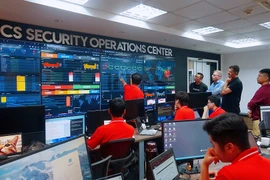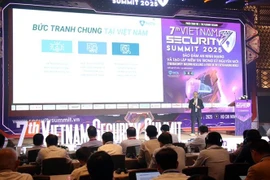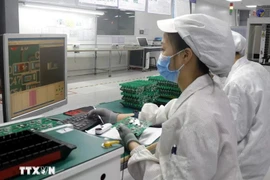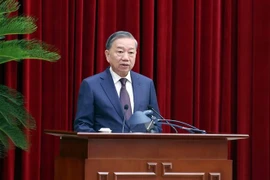HCM City (VNA) – While artificial intelligence (AI) is ushering in remarkable opportunities for innovation, it also poses major cybersecurity challenges, as the technology is being exploited as a tool for sophisticated cyberattacks, heard a workshop in HCM City on July 9.
The workshop, co-organised by the Quang Trung Software City (QTSC) and the Ho Chi Minh City Computer Association (HCA), aimed to review current AI application models, thereby improving digital capabilities, strengthening cyber defence, and ensuring the safety of cyberspace for both organisations and the national digital infrastructure.
According to Nguyen Thanh Lam, head of QTSC's Cybersecurity Centre, a key concern is the sharp increase in AI-powered attacks, noting that 67.4% of phishing attacks in 2024 involved the use of AI. However, awareness remains limited, with 66% of organisations recognising AI as a major disruptor, but only 37% having protective measures in place.
Lam outlined several emerging threats, including the rapid growth of deepfake technology, which increased tenfold between 2022 and 2023, with basic deepfakes now created in just 45 minutes. AI-based phishing is also becoming increasingly sophisticated, leveraging machine learning (ML) to craft personalised content. Other threats include the automation of code encryption and evasion of endpoint detection and response (EDR) systems, as well as the use of AI to analyse user behaviour and design targeted attack scenarios.
Statistics from the Ministry of Science and Technology revealed that by the end of 2024, Vietnam had nearly 74,000 digital technology enterprises, a year-on-year increase of 10.1%, that contributed around 11% to the national GDP. AI-powered solutions are being widely applied in management, production, and operations, underlining the far-reaching impact of the technology across all areas of life.
Tran Huu Dung, Director of QTSC and Vice Chairman of HCA, said that alongside the exceptional opportunities brought by AI, there are increasingly serious cybersecurity threats. He noted a rise in the scale and sophistication of attack campaigns, particularly those targeting critical information systems in sectors such as telecommunications, energy, finance, and logistics.
A report from Fortinet in June revealed that automated scanning attempts had surged to 36,000 per second, a 17% increase from the previous year. Alarmingly, 42% of these were account takeover attacks, and leaks involving 1.7 billion sets of credentials. In Vietnam, data from the National Cybersecurity Association showed that 659,000 cyberattacks were recorded in 2024, affecting approximately 46.15% of government agencies and enterprises.
Dung emphasised that digital transformation must be integrated with security and operational optimisation. He also mentioned that the use of AI not only allows businesses to process data more intelligently but also enables them to address increasingly sophisticated cyber threats./.

See more
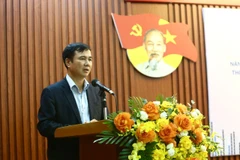
Measures sought to enhance innovation policy evaluation in Vietnam
In the context as Vietnam is promoting institutional reform, the development of policies based on an efficiency assessment mechanism is an urgent requirement to ensure focused investments.

Phu Quoc special zone advances toward smart urban centre
To serve both the two-tier local government operations and the APEC 2027 Leaders’ Week, An Giang is implementing a major tech infrastructure project on Phu Quoc Island, with a total investment of 500 billion VND (19.1 million USD).
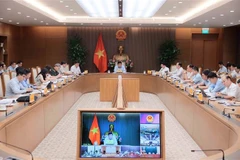
Deputy PM urges stronger push for smart city development
The Deputy PM applauded the task force’s preparation, stressing that smart urban development is not a choice but an inevitable trend for countries aiming for sustainable growth, improving the quality of life for people, and strengthening urban governance and operation.
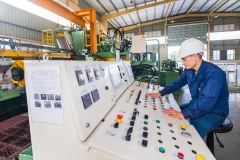
More opportunities offered for investors in science, technology
Public-private partnerships are expected to create positive synergy, while also placing greater responsibility on private investors in managing and developing projects. This approach helps ensure the effective use of public funds to advance science and technology, foster innovation, and drive digital transformation.
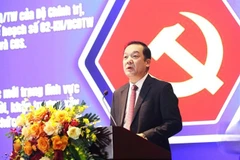
Over 75,000 digital technology enterprises operating stably in Vietnam
Vietnam ranked 44th out of 133 economies in the Global Innovation Index 2024, up two places from the previous year, and retained its leading position among lower middle-income countries.

CMC Corporation to build 250 million USD data centre in HCM City
The centre will initially operate at a capacity of 30MW and is expected to scale up to 120MW, serving the huge computing needs for AI development and the digital economy sector of the city.
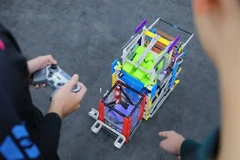
Hanoi to establish innovation centre as joint stock company to drive tech-led growth
The Hanoi Innovation Centre is expected to help concentrate resources and create breakthroughs for rapid and sustainable growth.

HCM City embraces digital technologies to curb IUU fishing
Across the city’s coastal communities, local authorities are adopting specialised digital applications to manage fishing vessels, monitor catch data, and support traceability efforts.
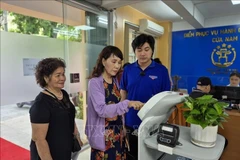
Hanoi’s Cua Nam ward introduces AI robot to support public services
The introduction of AI robots marks a key step in Hanoi’s efforts to streamline administrative processes, modernise public services, and build a more citizen-friendly government.
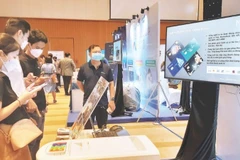
AI offers breakthrough opportunities for businesses
Under the Poliburo’s Resolution 57-NQ/TW on breakthroughs in science, technology, innovation, and national digital transformation, Vietnam aims to be among the top three ASEAN countries and the top 50 globally in AI development by 2030.
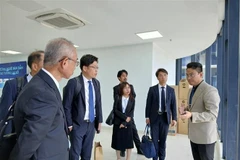
Da Nang offers favourable policies to boost startups, innovation
With the ambition to become a leading startup and innovation hub in Vietnam and Southeast Asia by 2030, Da Nang has implemented a range of incentives and actively promoted investment in its innovation ecosystem.
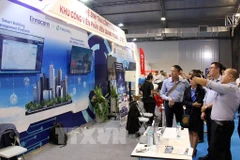
iTech Expo 2025 opens in HCM City with over 120 booths
Showcased technologies include AI, IoT, Big Data, drones, robotics, Holobox, and sector-specific solutions such as EdTech, AgriTech, FinTech, and cybersecurity. A dedicated zone for startups also forms part of the exhibition.
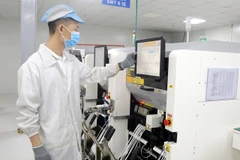
Vietnam to offer unprecedented incentives for digital tech companies
According to the Law on Digital Technology Industry, the incentives include full corporate income tax exemption for the first two years and 50 % reduction in the four following years, as well as land rent waivers for three years.
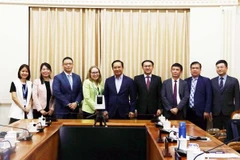
HCM City, Intel cooperate in training AI human resources
Kenneth Tse, General Director of Intel Vietnam, noted that in nearly 20 years of operations in the country, Intel Vietnam has exported over 4 billion products, contributing more than 100 billion USD to Vietnam’s export revenue.
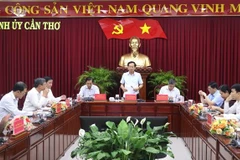
Can Tho, GenAI Fund team up for AI-driven transformation
The fund plans to assist Can Tho through a comprehensive set of initiatives such as the “Digital Transformation for All” programme to promote digital literacy; AI training for public officials and businesses; startup incubation and co-investment; and financial support for AI research and innovation. Additional support includes providing free working spaces for AI developers and formulating a region-specific AI strategy.
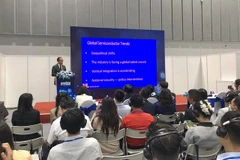
Vietnam, one of most promising players on global semiconductor landscape
Amid growing global demand, fragile supply chains and intensifying geopolitical conflicts, Vietnam is rapidly emerging as one of the most promising players in the global semiconductor landscape, a seminar heard in Ho Chi Minh City on July 2.

Vietnam sets out incentives for PPPs in sci-tech development
Key areas eligible for PPPs include high and strategic technologies; infrastructure for the research, development, and application of high and strategic technologies; and digital infrastructure supporting the digital economy, digital society, and digital government.
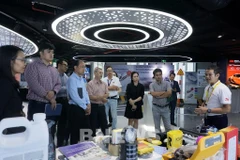
Advanced technology solutions ready for North–South high-speed railway project
During the visit, the parties exchanged ideas on high-tech material solutions and technologies that could be applied to national strategic transport infrastructure projects, particularly the North–South high-speed railway project.
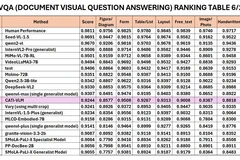
Vietnam’s new AI model masters complex document analysis
CATI-VLM is an AI model for document reading that has already claimed a spot among the world’s elite, ranking first in Vietnam and among the top 12 globally in the Document Visual Question Answering (DocVQA) category of the Robust Reading Competition (RRC) in June 2025.

Party chief calls for stronger efforts in innovation, digital transformation
General Secretary Lam also emphasised the need to immediately issue policies to attract and retain high-level domestic and overseas talents, particularly in critical fields like AI, semiconductors, and advanced materials.
